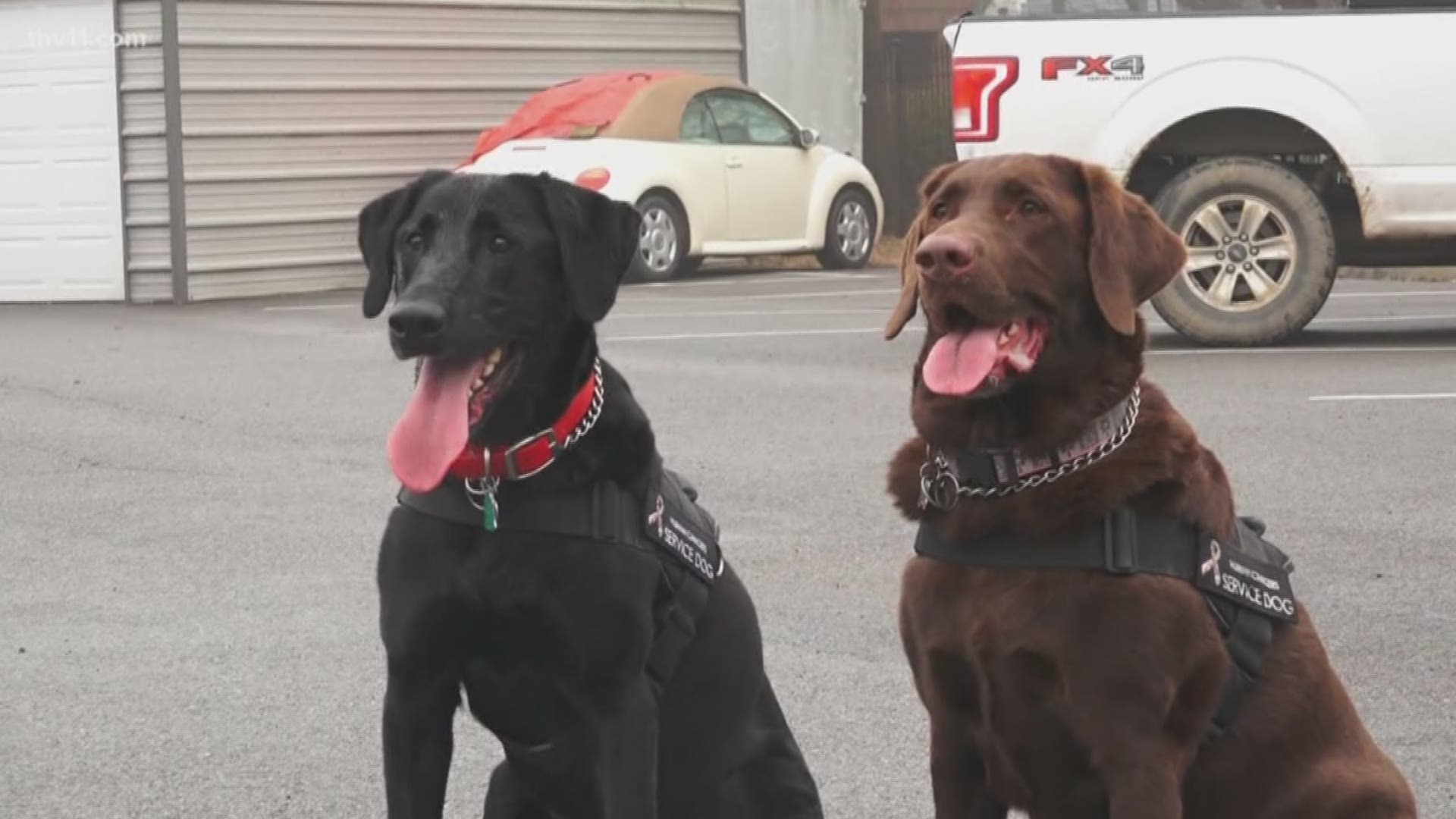Firefighters work to save our lives every day. Now, they need help fighting for theirs as they battle more than just fires.
According to Dr. Arny Ferrando, a professor at UAMS, firefighters are nearly five times more likely to develop cancer than the average American. The area around their throat where they wear protective hoods, is a breeding spot for carcinogens.
That's why Captain Billy Jones said the North Little Rock Fire Department jumped on the opportunity to work with UAMS's cancer research team to help them better diagnose thyroid cancer.
“In the recent past we’ve had one [firefighter] pass from thyroid cancer and a number of guys right now are fighting cancer and still working on the job,” Jones said. “You're scared and worried this going to happen and then you get over the hump and say I want to find out and I want to know early.”
The department is working with a team of researchers training dogs to sniff out thyroid cancer in blood and urine samples. Knowing the prevalence of thyroid cancer in firefighters, Dr. Ferrando realized having them bring in their urine samples could help give the dogs more samples to train with and hopefully, help catch thyroid cancer in the firefighters earlier.
“What we have found in our research is that the dogs need a lot of examinations to get good. So you can’t do this in 20 to 30 samples, you need 300 to 400,” said Dr. Ferrando.
The firefighters in North Little Rock have been so enthusiastic about the project, 84 percent of them have participated in donating their samples.
“We want to do anything we can to find out early,” Jones said. “If we can help the 163 guys on this job and others state wide or nationally, we are all in.”
Stefani Waggoner, a dog trainer, has been working with UAMS teaching the dogs to detect the cancer. While they've successfully detected cancer in hundreds of samples, she knows dogs in the program need continued practice.
“I think it’s going to add great experience for these dogs seeing these blind samples and it will validate the dogs accuracy which will be best for the research,” she said.
She said that while the research aspect is important, the opportunity to work with firefighters is meaningful far beyond that.
“These first responders are out here saving lives everyday so if we can help try to save theirs that would be the best thing,” she said.
The North Little Rock Fire Department said they plan to continue this partnership with UAMS for as long as needed.
Waggoner said the dogs will soon start training with the samples the firefighters have already donated.

